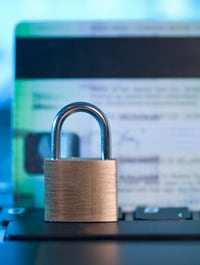Protect Yourself from Stimulus Payment and COVID-19 Scams

The IRS is warning taxpayers about a new wave of COVID-19 scams that are targeting people’s stimulus payments and personal information.
In the last several months, the IRS said it has seen a variety of stimulus payment scams and other financial schemes designed to steal money and personal information from taxpayers.
Criminals are taking advantage of the second round of Economic Impact Payments, as well as the approaching tax filing season.
Some common COVID-19 scams include:
- Text messages asking taxpayers to disclose checking or saving account information under the promise of receiving a $1,200 or $600 Economic Impact Payment. These text messages often include a phony link to ‘accept payment’.
- Also watch out for bogus ‘urgent’ texts claiming to help you track your stimulus check or confirm your stimulus check by clicking on a link to “access benefits.” These scams attempt to lure you into giving up your private information or even downloading malware on your phone. You should never click these links or enter your financial account information or any other personal information.
The IRS will never send an unsolicited text.
- Phishing schemes using email, letters and/or social media messages with keywords like “Coronavirus,” “COVID-19” and “stimulus” in varying ways. These scammers know many people are in desperate need of money, and they will use certain buzz words to entice you.
The IRS will never send you a direct message (DM) in a tweet.
- The Treasury Department also is warning about emails or phone calls pretending to be from a government agency like the IRS. These agencies would not be contacting you if you haven’t contacted them first. Remember that the IRS doesn’t have the capacity to speak with people on the phoneabout their stimulus checks. They certainly won’t take the time to call you or look up your email account, Twitter account or any other social media account.
- Another variation of this is a promise of faster stimulus check delivery. Nobody can get you your payment faster. If you are asked to verify or provide financial information by phone, email or text to speed up the delivery of your payment, that’s also a scam. Again, the IRS won’t call or email you to verify your information. Only use this IRS web page to submit information to the IRS. Anyone who asks to work on your behalf promising that they can get you money faster — in person or online — is a scammer. In addition, the IRS says you also should not be asked to sign your check over to anyone else.
- Fake/Bogus checks. One scam may send an odd amount — specifically including cents — and ask you to call a number or verify information online in order to cash it. The IRS says this is a scam. The US Treasury, working with the IRS, will either issue your stimulus check through direct deposit or mail you a check or EIP card if that is not possible. As was the case with the first check, most people won’t need to fill out an application or contact the IRS to get your second check. If you do, it will be through the Recovery Rebate Credit as part of your 2020 tax return.
- Fake Fee. If anyone tries to get you to pay a fee to get your stimulus money, that is a big red flag. You should not have to pay to get your check. Some scams try to convince you that you must pay to get your check. The IRS won’t ask you to deposit your check and then send them money. If paying through direct deposit, the IRS says that economic impact payments will be deposited directly into the same banking account reflected on the most recent tax return that you filed for 2019. If the IRS does not have a taxpayer’s direct deposit information, a check will be mailed to the last known address on file.
- If you’re a retiree who doesn’t normally file a tax return and someone offers to submit information for you or claims you must verify information before getting your check, something is wrong. The IRS says no action is needed on the part of retirees to receive a stimulus check if they don’t normally file a tax return.
- Another big scam the IRS is seeing is the sale of fake at-home COVID-19 test kits.
**The IRS said taxpayers should not engage in any of these types of solicitations.**
For more information about these scams, visit the IRS Tax Scams Consumer Alert page.
Please remember…In most cases, you don’t need to do anything to get a stimulus payment!!!
Here’s how to find out when your check is coming, and calculate how much money you’re likely to receive. Always go to the official IRS web page to find out information about your check. To keep track of your second stimulus check, you can check out the IRS’ Get My Payment page. You can also track your check through the mail.
If you think your personal information might have been compromised, the IRS suggests you go to IdentityTheft.gov. The site lets you report identity theft to the IRS and FTC simultaneously and develop a recovery plan.
To learn more about COVID-19 and stimulus payment scams, visit IRS.gov.
